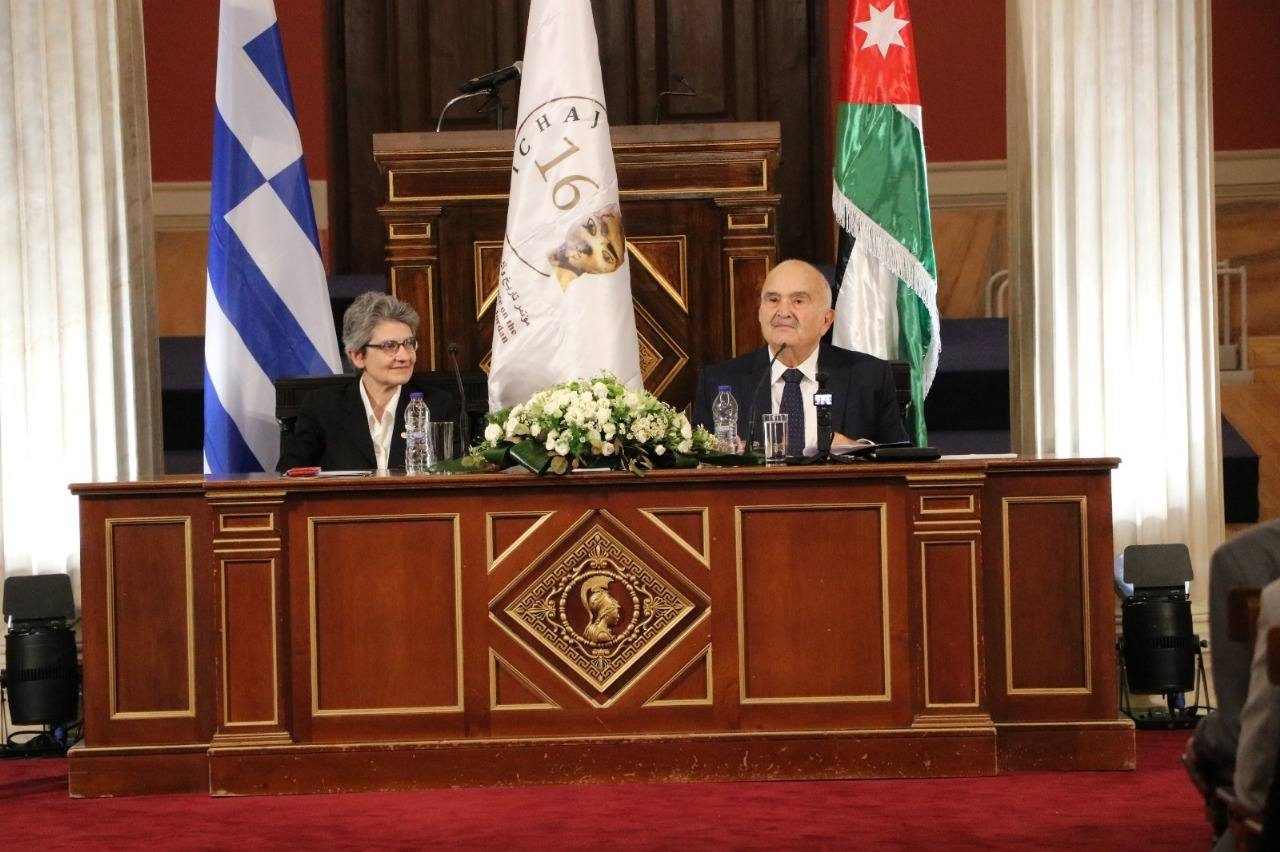The 16th International Conference on the History and Archaeology of Jordan (ICHAJ 16) was inaugurated on September 22, 2025, in Athens under the patronage of HRH Prince El Hassan bin Talal, bringing together hundreds of scholars from across the world to explore Jordan’s role in regional history and its future within the global heritage field.
Organised by the Ministry of Tourism and Antiquities and the Department of Antiquities in cooperation with the National and Kapodistrian University of Athens, the five-day conference runs until September 26 under the theme “Archaeology and Sustainability: Learning from the Past for a Safer and More Resilient Future.”
Prince El Hassan: “Archaeology is not neutral”
In his opening address, Prince El Hassan underscored the importance of bridging the past with present realities, stressing that archaeology must be understood as an active tool in shaping society rather than as a neutral academic pursuit.
“Civilisation is not the product of a single people’s effort, but rather the outcome of encounters and cultural exchanges that link different societies across centuries,” he said. Holding this edition in Athens, “the birthplace of democracy,” he noted, offered more than symbolic value: it highlights the meeting points of cultures and ideas that continue to define the Levant.
The prince drew attention to Jordan’s unique position at the crossroads of empires — from the Nabataean Kingdom in Petra to the Greco-Roman and Islamic periods — affirming that these layers of heritage continue to shape the region’s identity. He also urged the establishment of reliable databases to transmit knowledge across generations and to anticipate crises by learning from past lessons.
“We cannot not think about our counterparts in Gaza,” the Prince said.
Prince El Hassan took the opportunity to raise awareness once again on the devastating destruction of education unfolding in the Gaza Strip. He warned against the on-going genocide in Gaza that targets all life aspects, and what he described as “ecocide, urbicide, and scholasticide” in the Strip, recalling Gaza’s once-high literacy rates, contrasting them with the destruction of education in recent years, which he called “the annihilation of education that took decades to build.” Such tragedies, he said, risk undermining intellectual resilience worldwide.
A platform for global dialogue
Director General of the Department of Antiquities, Fawzi Abu Danneh, described ICHAJ as one of the most prestigious international scientific gatherings on Jordan’s heritage, enhancing its role as a regional centre for knowledge and cultural dialogue.
Minister of Tourism and Antiquities Imad Hijazin added that the conference not only strengthens Jordan’s historical image but also highlights its position in the region economically and socially.
Held every three years since its inaugural session at Oxford University in 1980, ICHAJ has become a vital platform for presenting new archaeological discoveries, methodologies, and debates. This year’s programme includes around 265 research papers and workshops delivered by Jordanian, Arab, and international scholars.
The conference’s 13 thematic tracks include “Archaeology, Identity, and Human Rights,” “Climate Change and Cultural Heritage,” and “Sustainable Tourism and World Heritage Sites in Jordan.” Sessions will present recent excavation reports, technological innovations in archaeology, and reflections on cultural heritage management.
By hosting ICHAJ 16 in Athens, organisers highlight the enduring cultural ties between Greece and Jordan, reinforcing the broader Euro-Mediterranean context in which Jordan’s history has always unfolded.
Article by Sophie Constantin, published by The Jordan Times.






